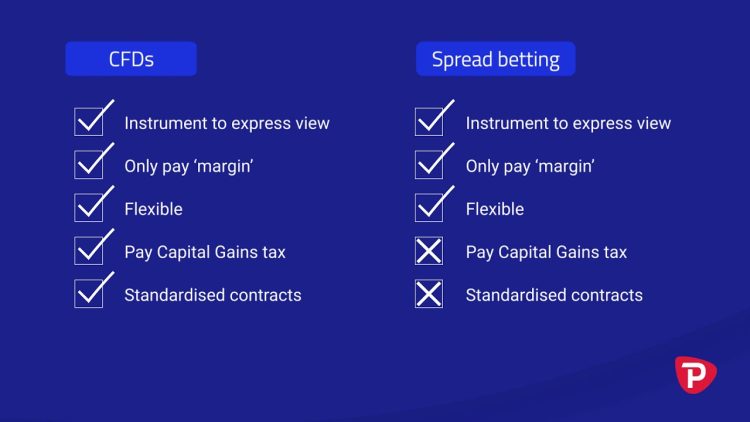CFDs and Spread Betting are two very different ways to profit from the price movements of an asset. While CFDs allow you to profit from the movement of an asset, spread betting lets you profit from a change in price without actually owning said asset.
Important terms to know
CFD: a contract where the buyer and seller agree on a current ‘difference’ in price so that when settlement happens at the end of the contract, the profits or losses are transferred between the two counterparties.
Spreading: placing an order for one contract but actually buying (or selling) more than one contract while considering other orders on the market. The size of every single contract can be smaller than the initial order. It is done to limit the potential loss and maximize gains throughout trade execution.
Leverage: using borrowed capital to increase exposure to investments to generate greater profits than could have been generated by investing directly without leverage. Click here magazinevibes Visit here theedgesearch Touch here thenewsinsider Visit this website soap2day Learn more about healthworldnews
Spread Betting: A type of bet where you don’t actually need to own, meaning they’re traded over-the-counter. It’s a type of wager where the bettor predicts whether the price of an asset will rise or fall relative to a set point in time. The person placing the bet doesn’t own the underlying asset but simply bets on its future movement.
Spread Betting or CFDs?
Both products serve as market instruments that offer traders leveraged exposure to financial markets such as stocks, forex, commodities and indices. While both products can be used for speculative purposes – to make a profit by going long or short – they have a slightly different underlying function which results in some notable differences between them:
CFDs is a contract where the buyer and seller agree on a current ‘difference’ in price. When settlement happens at the end of the contract, the profits or losses are transferred between the two counterparties. CFDs can be bought and sold on margin, which means you can trade a more prominent position than your account balance. It allows traders to magnify their returns – as well as their losses.
Spread Betting is where the bettor predicts whether the price of an asset will rise or fall relative to a set point in time. The person placing the bet doesn’t own the underlying asset but simply bets on its future movement. Spread Betting is not leveraged, so there is no need to post margin; your losses and gains are based purely on how right or wrong you were about the market direction. The main benefit of spread betting is that it’s a leveraged product so that you can trade a larger position than your account balance. This means that your profits – and losses – are magnified relative to the size of your position.
Visit now online best website thedolive
Click here: iloungenews .
The benefits of using CFDs?
- CFDs are available on a greater range of assets, including stocks, indices, commodities and forex.
- CFDs offer traders the ability to trade on margin, which allows for larger positions and increased profits (or losses).
- CFDs are regulated products which mean they are safer than spread Betting
- CFDs allow you to go short and long, giving you more flexibility in your trading.
The main benefit of spread betting is that it’s a leveraged product so that you can trade a larger position than your account balance. This means that your profits – and losses – are magnified relative to the size of your position.
When choosing between CFDs and spread betting, it’s essential to consider the level of risk you’re comfortable with and your trading style. CFDs may be better suited for traders who are comfortable taking on more risk, while spread betting may be more suitable for those who want to trade without any leverage. Ultimately, it comes down to personal preference and what you feel most comfortable with.
Finally
So which one is right for you? It depends on your circumstances and how comfortable you feel taking on risks. Do your research, and demo accounts are available, so practice before risking real money and choose the product that fits your trading style. If you’re ready to start but need more assistance, speak to a Saxo Broker in your region, they give trusted advice.























